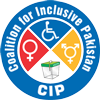ISLAMABAD, March 3, 2021: The Trust for Democratic Education and Accountability (TDEA) hosted an online discussion on accessible healthcare for the transgender community in Pakistan. Dr Zafar Mirza, Ex-Special Assistant to the Prime Minister (SAPM) on Health, while leading the discussion, urged the transgender community to register with the National Database and Registration Authority (NADRA) and acquire National Identity Cards (NIC), to open up avenues for their accessibility to state-sponsored welfare programs.
The meeting was attended by 40 transgender activists representing civil society organizations (CSOs) from across the country. Highlighting the dire financial conditions of the country’s marginalized factions, especially transgender persons, Dr Mirza briefed the participants regarding efforts being made by the incumbent government to provide accessible healthcare to under-privileged Pakistani citizens. For that purpose, the government launched the Sehat Sahulat Program (SSP) for transgender persons. However, a prerequisite to enroll in the program is the possession of a valid transgender NIC, where the gender section is marked with ‘X’, rather than the male or female option.
“Currently, only 1,600 transgender persons out of the country’s entire population are registered with NADRA, which is an alarming figure,” said Dr Mirza. “Out of these 1,600, only 500 have enrolled for SSP.” He called on CSOs, especially those led by or advocating for the rights of transgender persons, to play an active role in their NIC registration. Citing under-representation as one of the key factors behind the meagre registration numbers, he also highlighted that many transgender persons are declared ineligible to avail the service due to incorrect gender registration, with many members of the transgender community being registered in either the male or female category, rather than the ‘X’ category.
Following a detailed briefing on the enrollment process for the program, Dr Mirza answered questions of the participants, who inquired about the limited geographical coverage of SSP. The ex-SAPM informed attendees that since this was a new initiative that required extensive coordination between the public-private sector, the government is working on increasing the geographical scope, especially for rural areas.
The participant transgender activists represented organizations that are a part of the Coalition for Inclusive Pakistan (CIP). CIP is a unique coalition of transgender, persons with disabilities, and women rights’ activists, formed by TDEA in 2017, to enhance the inclusion of these marginalized segments in electoral and political processes.




